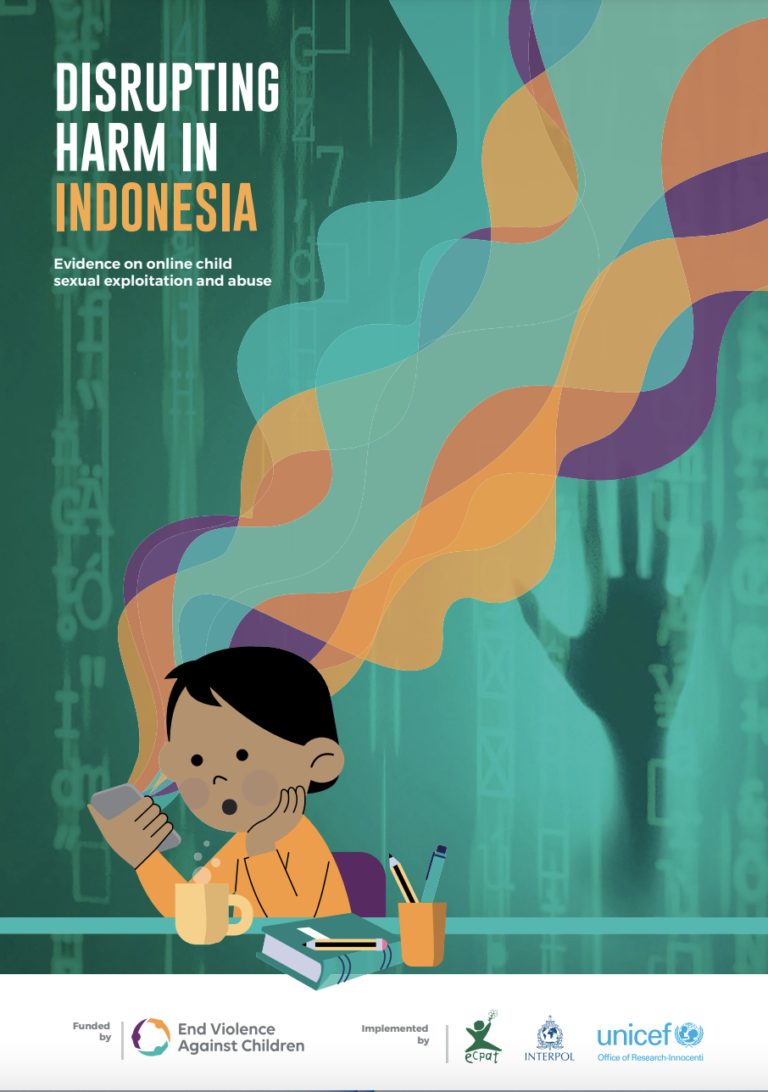Funded by the Global Partnership to End Violence against Children, through its Safe Online initiative, ECPAT International, INTERPOL and UNICEF Office of Research – Innocenti worked in partnership to design and implement a multifaceted research project on online child sexual exploitation and abuse: Disrupting Harm. The research was conducted in seven Eastern and Southern African countries and six Southeast Asian countries, including Indonesia. Data are synthesised from up to nine different research activities to generate each national report which tells the story of the threat and presents clear recommendations for action.
Key insights: This report concludes by highlighting six key insights from the research:
1. In the past year, at least 2% of internet-using children aged 12–17 in Indonesia were subjected to clear examples of online sexual exploitation and abuse that included being blackmailed to engage in sexual activities, having their sexual images shared without permission, or being coerced to engage in sexual activities through promises of money or gifts. This number likely reflects underreporting.
2. According to the household survey, OCSEA offenders are most often people already known to the child – often an adult friend, a peer or a family member.
3. Children who were subjected to OCSEA on social media mainly said this happened through major platforms such as WhatsApp, Facebook and Facebook Messenger.
4. Children who were subjected to OCSEA tended to confide in people within their interpersonal networks, particularly their friends and siblings. Helplines and the police were almost never avenues they sought help.
5. The mandated government agencies in Indonesia acknowledge that OCSEA is a threat, but government efforts to address it need to be more extensive. The capacities of law enforcement agencies, justice professionals and social support workers to provide victims of OCSEA with access to child-friendly justice and support services is limited by the low levels of awareness of OCSEA, insufficient human and budgetary resources, and inadequate technical knowledge and skills.
6. Although existing legislation, policies and standards in Indonesia include provisions relevant to OCSEA, further legislative action is needed to criminalise all OCSEA-related acts.
The report ends with a detailed road map to be used by all relevant stakeholders in protecting children from online sexual exploitation and abuse: government; law enforcement; justice and social services sectors and those working within them; communities, teachers and caregivers; and digital platforms and service providers. Many of the recommendations align with the 2021 Regional Plan of Action for the Protection of Children from All Forms of Online Exploitation and Abuse in ASEAN. The recommendations are too detailed to be recounted in the Executive Summary but can be found in full on page 91 of this report.

